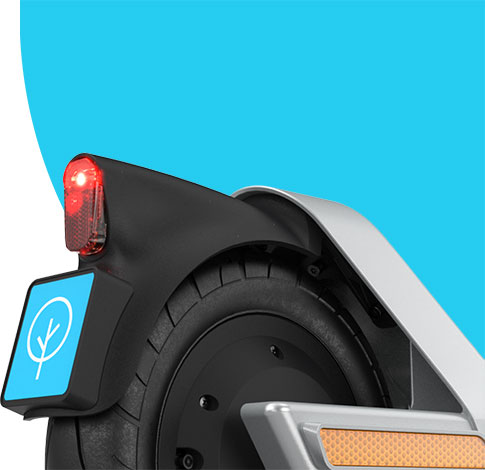We estimate that the volume of e-scooter rides has compounded 3.5x per year since 2017, proving that micromobility has an important role to play in redesigning urban mobility for a greener and more sustainable future. As the creator of this industry, it has been exciting to see micromobility become a transportation category in its own right, as an affordable and sustainable solution to street congestion that riders across the world use every day. However, in some of our markets, the conditions required to build an economically viable business are not yet met, and this is often due to the lack of a robust regulatory framework.
Earlier this year, we announced our plan to refocus the business on a path to financial self-sustainability. As part of this plan, we have conducted a thorough review of our portfolio of cities to determine whether or not they possess the regulatory framework necessary to facilitate the development of an innovative, competitive, self-sustaining micromobility industry. It has become clear that some markets lack such a framework, resulting in an oversupply of vehicles that has led to overcrowded streets and a high but frequently rotating number of competitors. All this invariably leads to sizable losses for operators who, as a result, cannot afford to invest and continue to make micromobility safer and more sustainable. Therefore, taking into account both the economic viability of markets and the regulatory environment, we have had to make the difficult decision to fully exit three European countries (Germany, Sweden, and Norway), and to wind down operations in several dozen additional, primarily small to mid-sized cities across the U.S. and EMEA. We are saddened by not being able to continue to support those customers who have come to rely on Bird electric scooters and bikes as their first choice for transportation. This difficult decision will unfortunately also have an impact on some of our employees and contractors in Europe, as well as on supporting teams in the U.S. We would like to thank all our employees and partners for their dedication and contributions to the business.
Given the strength of the long-term tailwinds for micromobility and the size of the addressable market, we are optimistic about the mid to long-term prospects of this industry to grow multiple fold. However, in the short-term the current macroeconomic conditions have created an environment that requires us to increase our level of financial discipline and make a clear distinction between markets where we see a near-term path to fully self-sustainable operations, and those which appear to be longer-term, riskier investments. This decision will allow us to intensify our focus towards cities and countries that have put the right regulatory framework and business environment in place in Europe, the U.S. and the rest of the world. Our commitment to these several hundred cities and the millions of riders whom we serve will only be reinforced.
We had to make a tough decision today in the interest of the future of the company. However, based on continued ridership growth and positive feedback from our city partners, we have never been more confident in the relevance and urgency of our mission – making cities more livable by reducing car usage, traffic, and carbon emission. We believe that focusing our business on a near-term path to self-sustainability best positions Bird to deliver on this mission in the long run.
Forward-Looking Statements
This blog post contains forward-looking statements. We intend such forward-looking statements to be covered by the safe harbor provisions for forward-looking statements contained in Section 27A of the Securities Act of 1933, as amended, and Section 21E of the Securities Exchange Act of 1934, as amended. All statements other than statements of historical facts may be forward-looking statements. Such forward-looking statements include, but are not limited to, statements regarding the prospects of the micromobility industry, the impact of regulation and other conditions on its sustainability, and our plan to focus on cities that have put in place the right regulatory framework and business environment. We have based these forward-looking statements largely on our current expectations. These forward-looking statements involve known and unknown risks, uncertainties and other important factors that may cause our actual results, performance or achievements to be materially different from any future results, performance or achievements expressed or implied by the forward-looking statements, including, but not limited to, the important factors discussed in Part I, Item 1A. “Risk Factors” in our Annual Report on Form 10-K for the year ended December 31, 2021 and Part II, Item 1A. “Risk Factors” in our Quarterly Report on Form 10-Q for the period ended June 30, 2022, and described from time to time in our future reports filed with the Securities and Exchange Commission. The forward-looking statements in this blog post are based upon information available to us as of the date of this blog post and while we believe such information forms a reasonable basis for such statements, these statements are inherently uncertain and you are cautioned not to unduly rely upon these statements. Except as required by applicable law, we do not plan to publicly update or revise any forward-looking statements contained in this blog post, whether as a result of any new information, future events or otherwise.

